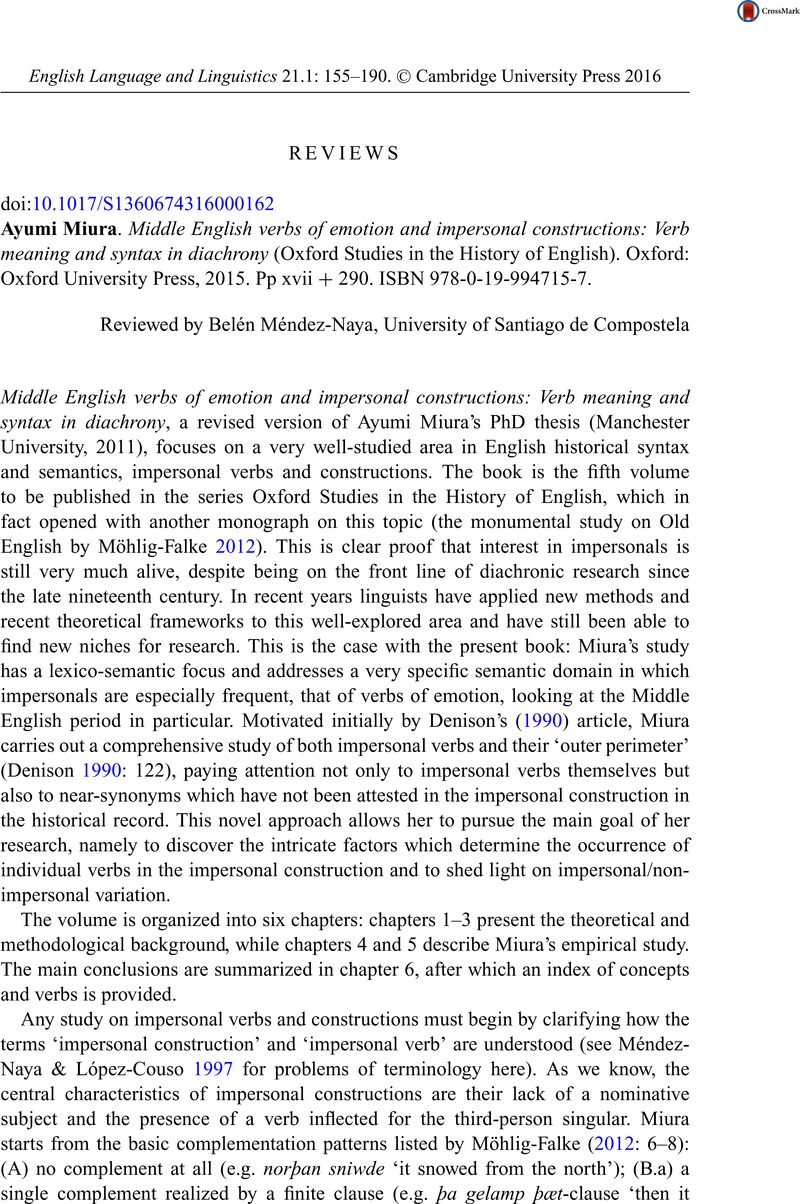Denison, David.
1990.
The Old English impersonals revived. In
Adamson, Sylvia M.,
Law, Vivien A.,
Vincent, Nigel &
Wright, Susan (eds.),
Papers from the 5th International Conference on English Historical Linguistics (Current Issues in Linguistic Theory 65),
111–40.
Amsterdam:
John Benjamins.
Google Scholar 